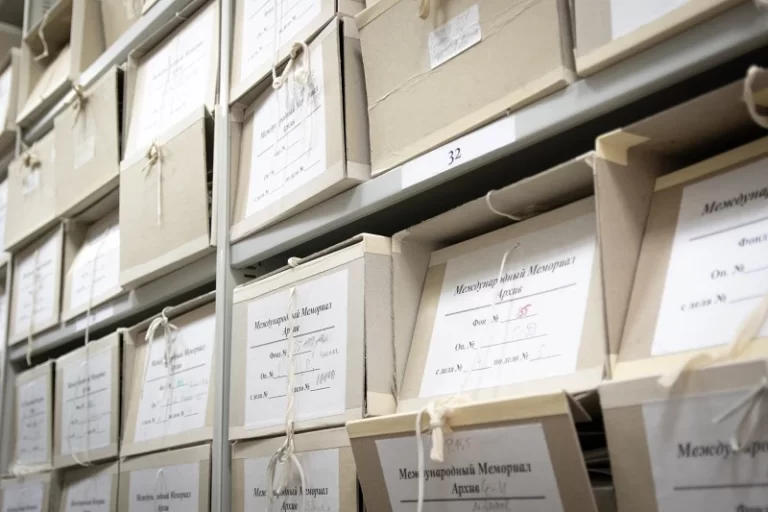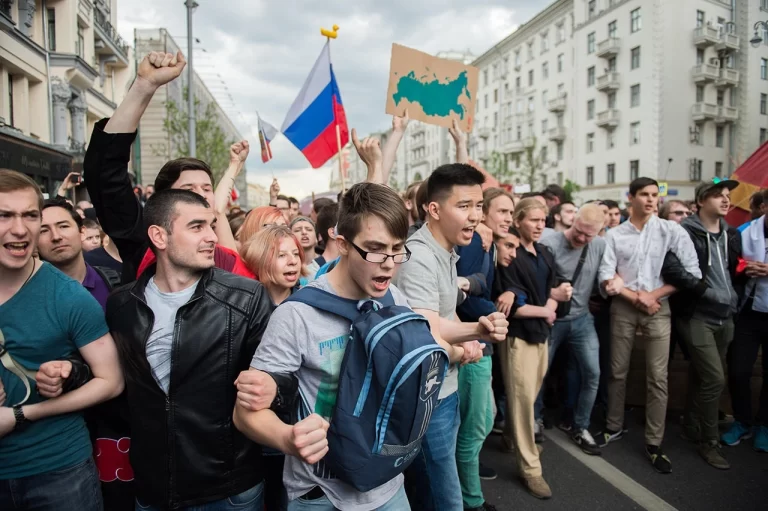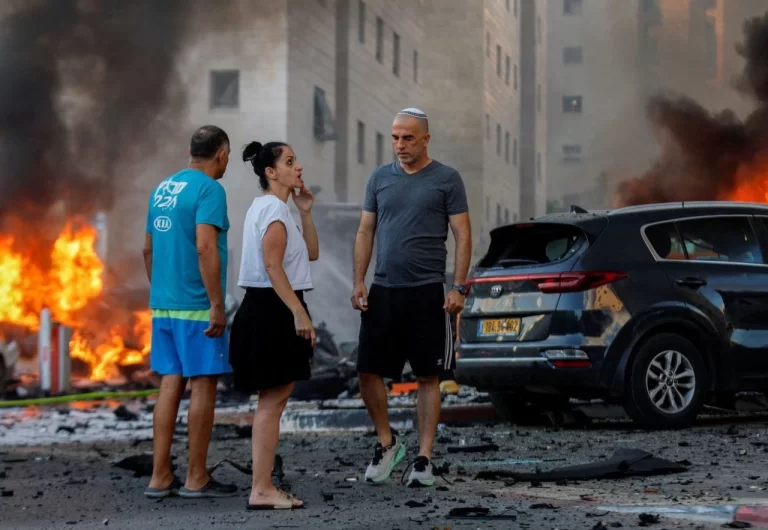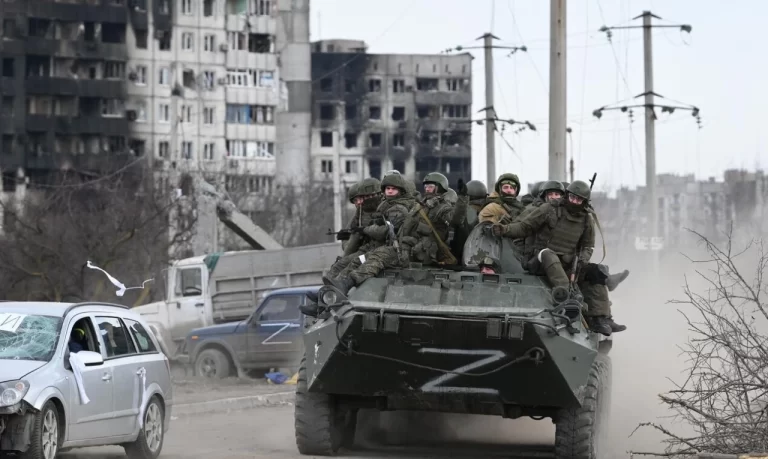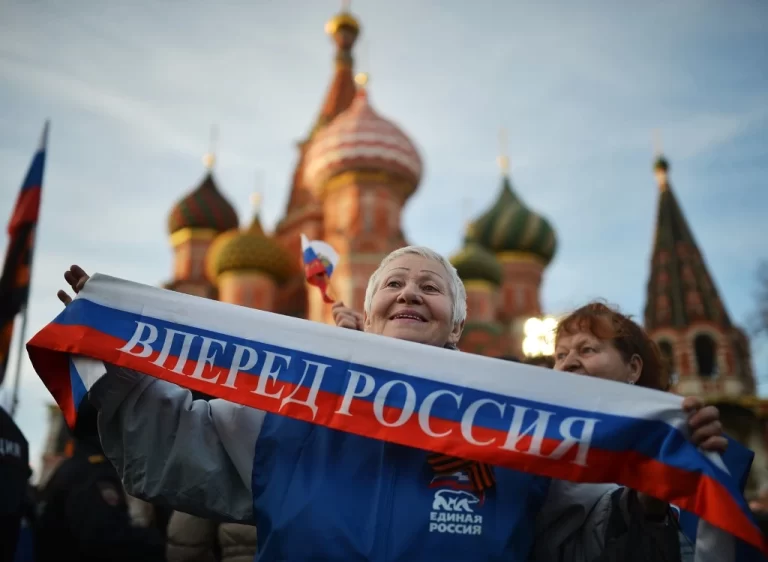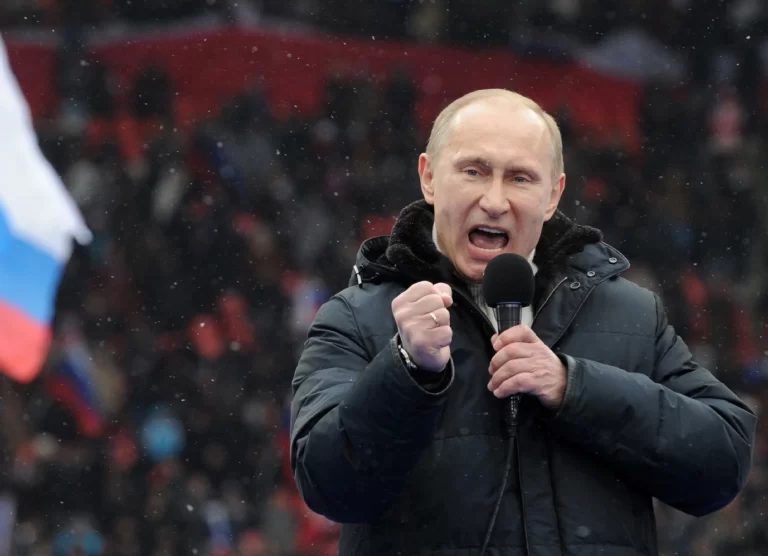A new history textbook for Russian high school students in grades 10 and 11 was unveiled, authored by Vladimir Medinsky, an aide to the President of Russia, and Anatoly Torkunov, the rector of MGIMO. Under the new law, this textbook will become mandatory in all schools starting September 1, 2023. The book rewrites history from the 1970s onward and introduces a section on a “special military operation” with clear ideological directives and political appeals to the youth.
Putin’s Historiographers Pen New History to Justify War in Ukraine
Russian Officials Pen New Textbook Shaping Schoolchildren's Perspective on Ukraine Conflict and Russia's Standoff with the “Collective West.”
Moscow, August 7, 2023 – A new history textbook for Russian high school students in grades 10 and 11 was unveiled, authored by Vladimir Medinsky, an aide to the President of Russia, and Anatoly Torkunov, the rector of MGIMO. Under the new law, this textbook will become mandatory in all schools starting September 1, 2023. The book rewrites history from the 1970s onward and introduces a section on a “special military operation” with clear ideological directives and political appeals to the youth.
Quoting directly from the textbook sections dedicated to “Ukrainian Neo-Nazism” and the justification for the war in Ukraine, we have retained all accents highlighted in the original text.
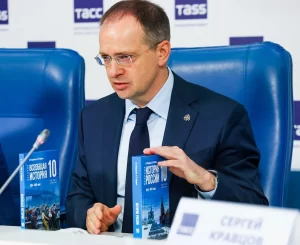
“Ukrainian neo-Nazism. Several generations in Ukraine since the 1990s have been brought up in dislike of Russia on neo-Nazi ideas.
Here we need to understand the following.
Ukrainian neo-Nazism is by no means a direct repetition of the German National Socialism of the 1920s and 1940s. It is an essentially new phenomenon. It is an embittered national, linguistic, and cultural violence of an aggressive minority against the majority before 2014. Eighty percent of Ukraine’s population comprised people for whom the Russian language and Russian culture were considered native and were not afraid to declare it. All recent presidents of Ukraine were originally Russian-speaking and did not even speak Ukrainian before taking office. They learned it “as the election progressed.”
But after the military coup in Kyiv 2014, Russian books, music, movies, and even cartoons were gradually banned. The teaching of the Russian language and in Russian is restricted. The use of Russian in any official institution is prohibited. Russian culture has been officially declared an enemy culture, the culture of “colonizers” and “occupiers.”
It is sad to say, but the Ukrainian language has also been subjected to violence: people who graduated from Ukrainian schools during the Soviet era are puzzled: they often find it challenging to understand the modern “mova.” And the fact is that in modern Ukrainian education, natives of Western Ukraine rule, aggressively imposing their dialect, their picture of the world, and their version of “history.” Millions of ordinary people are under pressure, forced to give up their language and culture, their friends and relatives in Russia.”
***
“The multi-volume “History of Ukraine-Russia.” In it, the separate Ukrainian nation and the “ancient Ukrainian statehood” for the first time in the history of world science was considered in isolation from Russia. It also brought discord among the neighbors-Malorossians, subjects of the Russian Empire. They also began to sponsor. So in the 19th century, the nationalist “Ukrainophile” idea was born on the money of Austrian intelligence.
Subsequently, these “ideas” were repeatedly returned by Russia’s opponents – the Germans during and after the end of the First World War. The idea of “Ukranianism” was also exploited by the Nazis during the Second World War. And every time, the goal was not a strong Ukraine but a weak Russia. In 2003, Ukrainian President L. Kuchma (a former Soviet party boss) even published a book titled “Ukraine is not Russia.” But this was only the beginning.
- Why exactly did Ukraine become an element of the West’s struggle with Russia?
The 2014 coup in Ukraine. In February 2014, a bloody armed rebellion took place in Ukraine with the direct support of the West. President Yanukovych was overthrown, and a junta came to power.
At first, the new government’s legitimacy was not recognized anywhere except in isolated parts of Western Ukraine. The residents of the east and south of Ukraine – Kharkiv, Odesa, Mykolaiv, and Mykolayiv – were particularly strongly opposed to it. Odesa, Mykolaiv, Crimea, and Donbas. The nationalists who seized power in Kyiv stopped at nothing. On May 2, 2014, in Odesa, they burned alive dozens of citizens protesting against the coup d’état and locked them in the Trade Union House. Gradually, armed units of Nazis, the so-called “national battalions” (Azov, Aidar, Donbas, Khortytsia and other organizations banned in Russia) and Ukrainian state security forces forcefully suppressed the pro-Russian demonstrations. However, they failed to do so in two regions: Crimea and Donbas, where resistance to the illegal Kyiv regime has taken on a prevalent character.
Curious details. The most famous cry of the state coup “Euromaidan” in 2014 was the chant of the rioting crowd on Independence Square (“Maidan Nezalezhnosti”): “Who doesn’t jump is moskal!” No translation, we think, is required.”
***
“At a rally to mark the anniversary of Crimea’s annexation to Russia on Nakhimov Square in Sevastopol.
The Crimean residents did not dare to suppress the nationwide outrage at the coup d’état in Kyiv by force of arms. The population of Crimea, which has always gravitated towards Russia, voted almost unanimously in favor of returning to a united country.
- What was the role of Western countries in the coup d’état in Ukraine? Do you think the internal crisis that emerged in Ukraine in early 2014 could have been resolved peacefully?
Return of Crimea. Parts of the Russian Black Sea Fleet were stationed in Sevastopol. This saved the peace on the peninsula. “Polite people,” the locals nicknamed the Russian military, ensured order and security. At the same time, the armed forces of Ukraine (AFU) and state security forces (SBU) were numerous and combat-ready on the peninsula. But demoralized military personnel left military units and refused to carry out orders from Kyiv. To honor those who had sworn an oath to the legitimate authorities, not a single Ukrainian soldier came out in Crimea with weapons in their hands in support of the Kyiv junta—at the referendum held on March 16, 2014, 97% of the residents of the Crimean peninsula and 97% of the residents of Sevastopol voted for reunification with Russia (the turnout was about 84%).
- Using knowledge from the history course, conclude why the population of Crimea voted in favor of reunification with Russia.
The Fate of Donbas. Residents of Donbas did not put up with the coup in Ukraine either.
In April 2014, the Donetsk and Lugansk People’s Republics (DNR and LNR) were proclaimed. A popular uprising took place in Donbas, where, unlike in Crimea, there was no Russian military.
A militia was formed to defend their native land, and veterans of Afghanistan, policemen, teachers, and miners signed up to join it.”
***
“А. Merkel, Chancellor of Germany from 2005-2022, who signed the Minsk-2 agreements: “The agreements gave Ukraine more time to develop between 2014 and 2021… And now Ukraine can respond and get the support it needs.”
П. Poroshenko, President of Ukraine from 2014-2019: “This document gave Ukraine eight years to build an army, an economy, and a global pro-Ukrainian anti-Putin coalition.”
- Why Ukraine did not fulfill the Minsk agreements?
The aggravation of the situation. The confrontation between Russia and the West became even more acute in the early 2020s. Joe Biden’s team came to power in the United States. The leadership of the regime in Kyiv also changed.
Shelling of Donbas became more frequent. There was no progress in the implementation of the Minsk agreements. Russia’s appeal to the US and NATO leadership at the end of 2021 with a proposal to finally work out a new agreement that would consider our country’s security interests was categorically rejected by the West.
On Ukrainian territory, NATO advisers were training Kyiv for an offensive in Donbas. U.S. bio-laboratories were organized in Ukraine, working in the strictest secrecy. Kyiv expressed its desire to acquire nuclear weapons.
Accession to NATO as a state objective was enshrined in the Constitution of Ukraine. The return of Crimea (according to Ukraine’s military doctrine) was Kyiv’s number one priority.
If Ukraine, having joined NATO, provoked a military conflict in Crimea or Donbas, then based on the NATO charter, Russia would find itself at war with all members of the North Atlantic bloc: from the U.S. and Great Britain to Germany and France.
It would have been, perhaps, the end of civilization.
This could not be allowed.
- What threat to Russia’s security did the actions of the Ukrainian authorities pose?”
***
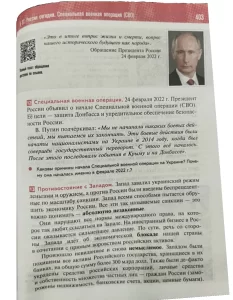 “This is ultimately a matter of life and death, a matter of our historical future as a nation.”
“This is ultimately a matter of life and death, a matter of our historical future as a nation.”
Address by the President of Russia
February 24, 2022.
Special Military Operation. On February 24, 2022, the President of Russia announced the beginning of the Special Military Operation (SMO).
Its goals are to protect Donbas and proactively ensure Russia’s security.
В. Putin emphasized: “We have not started any hostilities, we are trying to finish them. These hostilities were started by nationalists in Ukraine in 2014 when a coup d’état was carried out. That’s where it all started. The events followed this in Crimea and Donbas”.
- What are the reasons for starting the Special Military Operation in Ukraine? Why did it start exactly in February 2022?
Confrontation with the West. The West has flooded the Ukrainian regime with money and weapons, and unprecedented sanctions have been imposed against Russia. The West is trying, by all means, to bring down Russia’s economy. All these so-called sanctions – it is essential to realize this – are absolutely illegal.
They violate all norms of international law, which the West likes to invoke so much. Foreign business in Russia is under extreme pressure. The West is talking about an economic blockade of our country combined with the direct theft of Russian assets.
The unprecedented and, again, unthinkable has happened. The West has stolen all the assets of the Russian state held in their banks, totaling more than $300 billion. They have also de facto
stolen funds of Russian corporations, personal funds, and property of many private individuals – Russian citizens (real estate, bank accounts, shares, securities were frozen).”
***
“Such unique times don’t happen very often in history.
After the departure of foreign companies, many markets are open to you. Fantastic opportunities for a career in business and your start-ups are available.
Do not miss this chance.
Russia today is truly a land of opportunity.
Attempts to isolate our country have failed. Regular meetings of the Russian Presidency with leaders of Asian, Latin American, and African countries have shown that the majority of the planet understands and sympathizes with the course directed against the unipolar world and its “rules of life.”
On the contrary, the European Union states, which started the sanctions war against Russia at the behest of the United States, began to experience a shortage of energy and other vital resources. Inflation, which had not exceeded 1-2% per year since the late 1970s, has increased by an order of magnitude (in 2022 in Lithuania – 21%, Germany – 11%, Italy – 8%).
The primary beneficiary of the Ukrainian conflict has been the US. They managed to impose their expensive gas and other resources on Europe. The American defense industry is flooded with orders.
The USA is determined to fight “to the last Ukrainian.”
As Americans say: “It’s nothing personal. It’s just business.”
- How did the U.S. and its allies react to the beginning of Russia’s NWO in Ukraine? What were the positive and negative consequences of this reaction for Russia?
Ukraine is an ultra-nationalist state. Today, any dissent in Ukraine is severely persecuted, the opposition is banned, and everything Russian is declared hostile.
Everything that, in one way or another, testifies to the shared history and culture of the brotherly peoples is being destroyed. First, “decommunization” was the total demolition of monuments associated with the USSR. Then they continued to destroy memorials dedicated to the exploits of Soviet soldiers during the Great Patriotic War. Then they started destroying everything connected with Russia, including monuments to Pushkin and Catherine II, Russian writers and poets, musicians, and scientists.
Ukrainian neo-Nazis do not hide whose heirs they consider themselves to be. One of the AFU brigades has been given the name of…”

